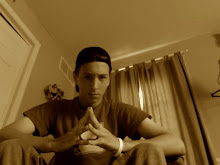It happened one night that I was made witness to a profoundly distressing and unsettling short film of this title. The hour was late and gathered in a friend’s house, we left off our pastime of friendly local area network competition to engage in another favorite amusement – video sharing. The host of the party pulled up the video linked below and the author of its origin intrigued me. I rather like Mark Twain, for he is an American icon as Winston Churchill is in English lore, both are famed for his cleverness, wit, and a timely word.
When I returned homeward the following day, I retrieved the video on Youtube and reviewed it, wondering if it was as startling the second time. You judge for yourselves, but use discretion – the masked spirit’s voice alone sends chills down my spine.
This is a long introduction to the actual book, which caught my eye at my local library, wondering, “How far is this off the mark?” Truth is, that most of the dialogue from the Claymation is faithful to the book, but the delivery is more subtly disturbing. The literary framework is 1590 in a small village, with two vicars. The first clergy member is Adolf, a man who met the devil and threw his glass of wine at the fiend, and Peter, a kindly old priest who is the only one not to fear the power of the local astrologer. This stargazer is a sly and devious sort, and holds the village in awe of his abilities to predict war and famine. (Twain makes it a point to say that this is not very impressive, for one or the other is always going on in the world.) When the three boys walk in the woods, they meet the mysterious stranger. The stranger tells them offhandedly that it is an angel, named Satan. Lucifer is his uncle. The stranger claims, and he is distractedly amused by humanity, the same way humans are amused by cat videos online – cute, but utterly foolish and not ultimately worth your full attention.
The stranger, who asks to be called Phillip Traum in other company, takes a fancy to the trio and gives them whatever they wish, all while decrying humanity and its “Moral Sense” which allows us to knowingly commit vile actions and take pleasure in their execution. The boys feel ashamed and compelled to defend their race, to the thought reading spirit’s patient amusement and derision. Satan compares himself and humanity like a red spider and an elephant. The spider’s life is a day, the elephant’s is a century. Does the elephant notice the spider’s wants, needs, aspirations, and wishes? If it deigned to take an active interest in the spider’s life, it might misstep and squash the creature, but if the elephant put its mind to the task, it could do the spider a small good turn in a disinterested and humoring attitude and the spider could be that much better off. Satan says it is rather like that multiplied to an exponential amount and intellectual distance.
Throughout the book, the trio desire Traum’s company, for in his presence, life becomes that much more interesting and exciting. This is similar to a darkened Perelandra by C.S. Lewis from the lady’s perspective and minus Ransom’s influence. It is innocence vs. enticement and temptation. Temptation need not be blatantly obvious as evil, it is the little steps along the way that lead from a faulty foundation of logic to a horrifying conclusion. Consequences come quietly and solemnly, rationalizations are softly and sweetly deployed, and the end is profoundly disorienting and philosophically unsettling.
“Life itself is only a vision, a dream… Nothing exists; all is a dream. God – man – the world – the sun, the moon, the wilderness of stars – a dream, all a dream; they have no existence. Nothing exists save empty space – and you! And you are not you – you have no body, no blood, no bones, you are but a thought. I myself have no existence; I am but a dream – Your dream, creature of you imagination. In a moment you will have realized this, then you will banish me from your visions and I shall dissolve into nothingness out of which you made me…” - Satan to the protagonist.
As a figure in a fictional world, it is true that Phillip, Peter, the astrologist, the three boys, are all figments of imagination and Satan’s presence doubly so. But taken to our dimension of reality, such thoughts are problematic. There is a Liar’s paradox of sorts in this. Satan is the father of lies, but quoted scripture when it suited his needs. Whatever he touches, even in this book by Twain, crumbles and is perverted. This angel is no saint, this creature is not human, this being’s morals are warped and twisted to feel perfectly logical and kind. If the only kindness to life is madness and death I would defy even those options and make a new path.
As with Puddleglum in C.S. Lewis’s the Silver Chair "Suppose we have only dreamed, or made up, all those things -- trees and sun and moon and stars and Aslan himself. Suppose we have. Then all I can say is that, in that case, the made-up things seem a good deal more important than the real ones . . . That's why I'm going to stand by the play world. I'm on Aslan's side even if there is no Aslan to lead it. I'm going to live like a Narnian even if there is no Narnia." Our faith is not blind, we see the signs of a greater hand involved in the creation of the world, a greater meaning behind the miracle of life, motion, and reason, a greater hope and purpose for which we may live and die for with sense of accomplishment and pride. I will not believe a fiction, though I will search its’ depths to find hope in the human heart and mind. As the eyes are the windows to the soul, so is a book a gateway to an author’s mindscape. We may discover things that others brush over in the tour, or even uncover nuggets of wisdom and cautionary examples of which the writer never considered that he or she knew. But we are ever to learn, even when the surface is murky, we must ever learn discernment and cut to the truth of the matter.
This caused me to think,
“What if there was no safety?”
Surprised by joy = Net
There is hope and life
Fictions and lies hold fragments
Twisted beyond truth.



Kaleb, I really enjoyed reading this post. Especially because Jake just showed John Langham, Levi and I this video clip. It disturbed me. Thank you for delving into the book and giving me a short version of the tale. As I was reading it, The Silver Chair came to mind, and I was amused to find that the exact passage that quotes Puddleglum's famous words wound up in the body of your review. Marvelously done.
ReplyDelete